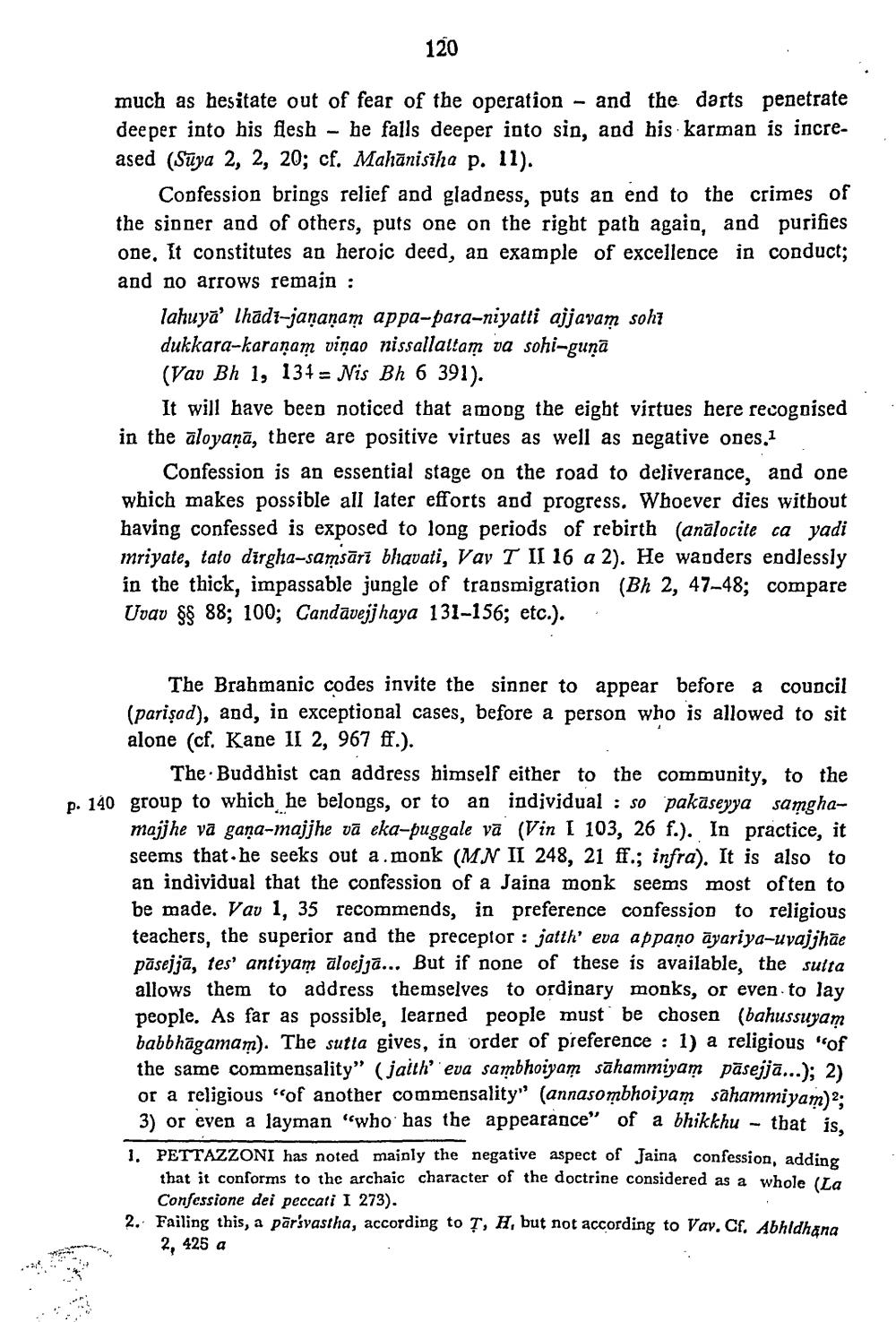________________
120
much as hesitate out of fear of the operation - and the darts penetrate deeper into his flesh - he falls deeper into sin, and his karman is increased (Suya 2, 2, 20; cf. Mahānisiha p. 11).
Confession brings relief and gladness, puts an end to the crimes of the sinner and of others, puts one on the right path again, and purifies one. It constitutes an heroic deed, an example of excellence in conduct; and no arrows remain :
lahuya' lhadi-jananam appa-para-niyatli ajjavam sohi dukkara-karanam viņao nissallaltam va sohi-gunā (Vav Bh 1, 134= Nis Bh 6 391).
It will have been noticed that among the eight virtues here recognised in the aloyaņā, there are positive virtues as well as negative ones.1
Confession is an essential stage on the road to deliverance, and one which makes possible all later efforts and progress. Whoever dies without having confessed is exposed to long periods of rebirth (analocite ca yadi mriyate, tato dirgha-samsārī bhavati, Vay T II 16 a 2). He wanders endlessly in the thick, impassable jungle of transmigration (Bh 2, 47–48; compare Uvav &$ 88; 100; Candavejj haya 131-156; etc.). .
The Brahmanic codes invite the sinner to appear before a council (parişad), and, in exceptional cases, before a person who is allowed to sit alone (cf. Kane II 2, 967 ff.).
The Buddhist can address himself either to the community, to the p. 140 group to which he belongs, or to an individual : so pakäseyya samgha
majjhe va gana-majjhe vā eka-puggale vā (Vin I 103, 26 f.). In practice, it seems that he seeks out a.monk (MN II 248, 21 ff.; infra). It is also to an individual that the confession of a Jaina monk seems most often to be made. Vav 1, 35 recommends, in preference confession to religious teachers, the superior and the preceptor : jatth' eva appaņo āyariya-upajjhãe pāsejja, tes' antiyam aloejjā... But if none of these is available, the sulta allows them to address themselves to ordinary monks, or even to lay people. As far as possible, learned people must be chosen (bahussuyam babbhāgamam). The sutta gives, in order of preference : 1) a religious "of the same commensality" (jaith' eva sambhoiyam sāhammiyam păsejja...); 2) or a religious "of another commensality" (annasombhoiyam sahammiyam)2. 3) or even a layman "who has the appearance" of a bhikkhu - that is.
1. PETTAZZONI has noted mainly the negative aspect of Jaina confession, adding
that it conforms to the archaic character of the doctrine considered as a whole La
Confessione dei peccati I 273). 2. Failing this, a pārsvastha, according to ?, H, but not according to Vav. Cf. Abhldhana
2, 425 a




